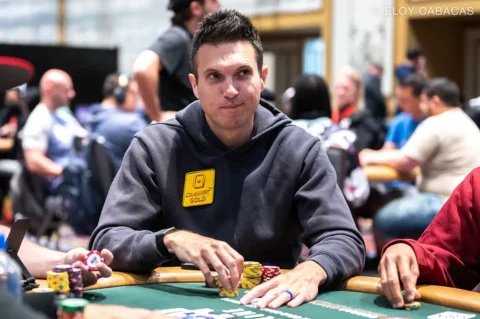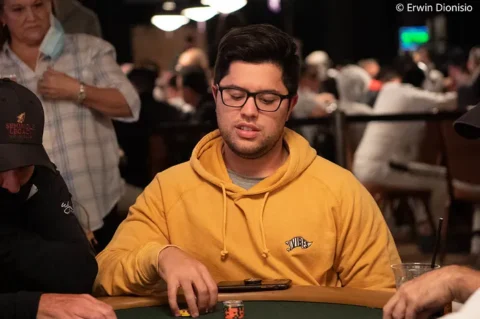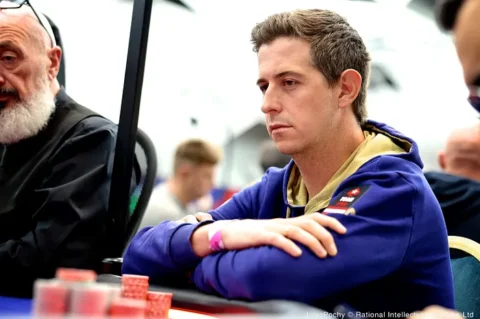Casino games have been popular for centuries, offering excitement, strategy, and a chance to win big. Whether it’s a game of skill like poker or a game of chance like roulette, players are drawn to the thrill of competition and uncertainty.
However, beyond luck and strategy, psychology plays a key role in shaping outcomes. From reading opponents at the poker table to managing emotions during high-stakes bets, understanding the mental side of gambling can give players an edge. So, how important is psychology in these games? Let’s take a look!
Online vs. Traditional Casinos: Psychological Differences
While traditional casinos rely on a carefully curated environment to create excitement, online casinos take a different approach. In physical casinos, bright lights, sound effects, and elaborate decor are all designed to immerse players and keep them playing longer. Online casinos replicate this experience with vibrant graphics, animations, and sound cues that mimic the thrill of a real casino. Find a safe casino with the turvallinen-kasino.com casino listing!
Another key difference is convenience. Online casinos allow players to gamble anytime, anywhere, which can reduce social pressure and make them more comfortable taking risks. Traditional casinos, however, add a social dynamic, where players must interact with dealers and other participants.
Online games also tend to be faster, encouraging rapid decision-making. Additionally, frequent promotions and bonuses in online platforms serve as psychological incentives, while traditional casinos rely more on loyalty programs and in-person perks to retain players.
Psychology in Poker: A Game of Strategy and Mind Games
Poker isn’t just about the cards you hold—it’s about reading people and controlling your emotions. A key psychological skill in poker is the ability to read opponents. This means observing subtle cues, like body language, betting patterns, and even changes in behavior. Skilled players can often tell when someone is bluffing or holding a strong hand based on these signs.
Bluffing is another critical element where psychology comes into play. To bluff successfully, players must project confidence and keep their emotions in check. A well-timed bluff can force opponents to fold, even when they have a better hand. But bluffing isn’t just about fooling others—it’s about controlling how you react to high-pressure situations.
Confidence also plays a huge role in poker. Confident players tend to make better decisions and take calculated risks. However, overconfidence can backfire, leading to reckless bets. Striking the right balance is what separates good players from great ones.
Psychology in Other Casino Games
In games like Blackjack, decision-making is key, and psychology often influences whether players stick to a strategy or act impulsively. Blackjack involves calculated risks—players must decide whether to hit, stand, or double down based on probabilities. However, under pressure, many players deviate from basic strategy due to fear or excitement, often leading to mistakes. Staying calm and focused is crucial to playing effectively.
Roulette, on the other hand, highlights how players perceive risk. Although the game is entirely based on chance, players often fall into the psychological trap known as the “gambler’s fallacy.” This is the belief that past outcomes—like a long streak of reds—somehow influence future results, leading players to make irrational bets. Understanding this fallacy can prevent costly errors.
Meanwhile, slot machines masterfully use psychology to keep players engaged. Flashing lights, catchy sounds, and near wins create a sense of excitement, encouraging players to keep spinning. These psychological triggers are designed to heighten engagement and prolong play.
Balancing Psychology with Luck and Skill
Although psychology plays a significant role in casino games, luck and skill shouldn’t be overlooked. In poker, skillful play and strategic thinking can lead to long-term success, but luck still determines the outcome of any single hand. In games like slots or roulette, luck dominates, though understanding the psychological tricks casinos use can help players gamble more responsibly. Ultimately, the best approach is to balance psychological awareness with the understanding that, in many cases, luck is the deciding factor.
Conclusion: The Mind Behind the Game
Psychology plays a crucial role in shaping how players approach and experience casino games. Whether it’s reading opponents in poker or resisting impulsive decisions in blackjack, understanding the mental aspect can lead to smarter play. By combining awareness of psychology with a sense of fun, players can enjoy gambling responsibly while keeping luck and skill in perspective.















